Question And Answer
Publications
Articles, publications, books, tools and multimedia features from the U.S. Institute of Peace provide the latest news, analysis, research findings, practitioner guides and reports, all related to the conflict zones and issues that are at the center of the Institute’s work to prevent and reduce violent conflict.
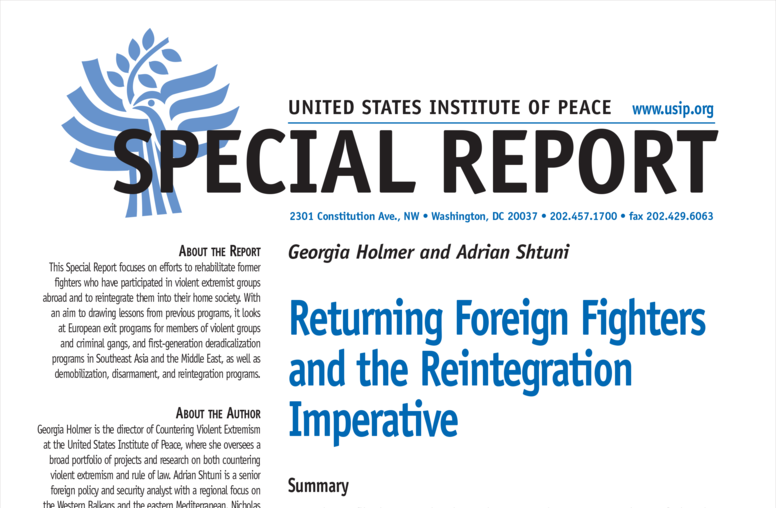
Returning Foreign Fighters and the Reintegration Imperative
This report aims to help policymakers and practitioners navigate the challenges of developing effective programs to rehabilitate and reintegrate foreign fighters returning from Syria and Iraq into their societies. Ultimately, holistic and comprehensive reintegration efforts designed to transition returnees address not only their needs, but also those of the entire society, and are critical in building more resilient and safer communities.
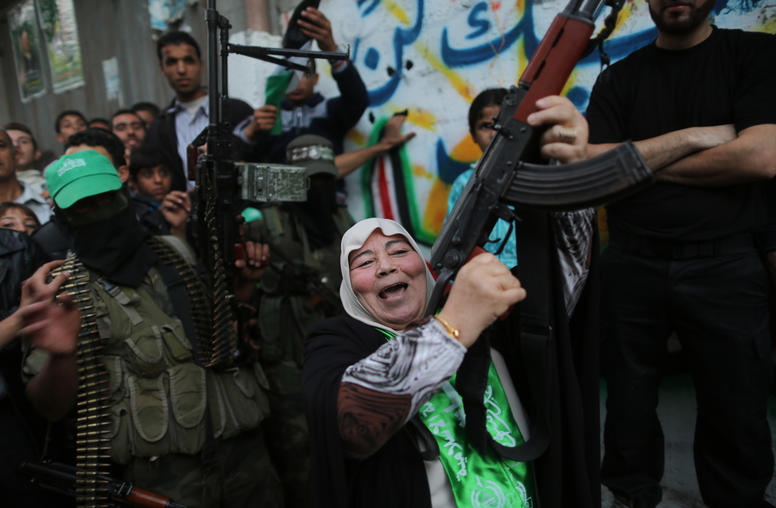
From Nazis to ISIS: Women’s Roles in Violence
From the Nazi regime of the 1940s through the Islamic State of today’s Middle East, an obscured element of history runs though the phenomenon of violent extremism: the participation of women. Contrary to the classic image of women as victims or, at least more recently, peacemakers, new research shows how women can stoke, support and sometimes directly join in violent action, scholars said in a discussion at the U.S. Institute of Peace.
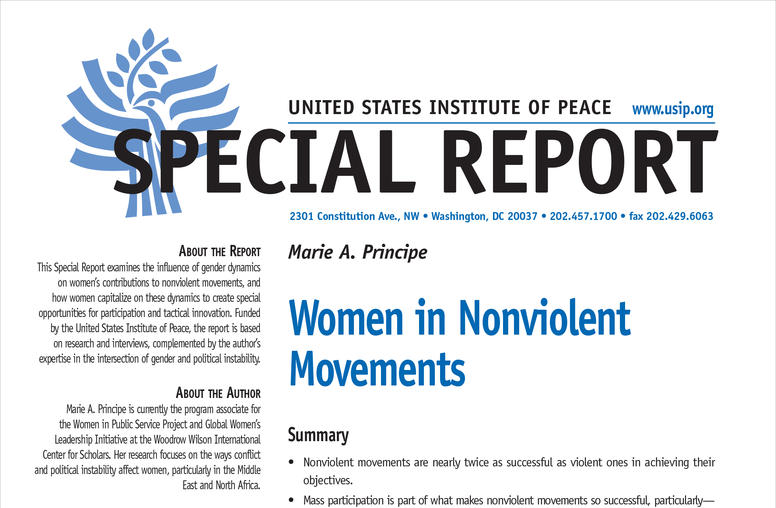
Women in Nonviolent Movements
Women’s meaningful involvement in civil resistance movements has shown to be a game changer. Examining movements in Argentina, Chile, Egypt, Liberia, the Palestinian territories, Poland, Syria, and the United States, this report advocates for the full engagement of women and their networks in nonviolent movements for a simple and compelling reason—because greater female inclusion leads to more sustainable peace.
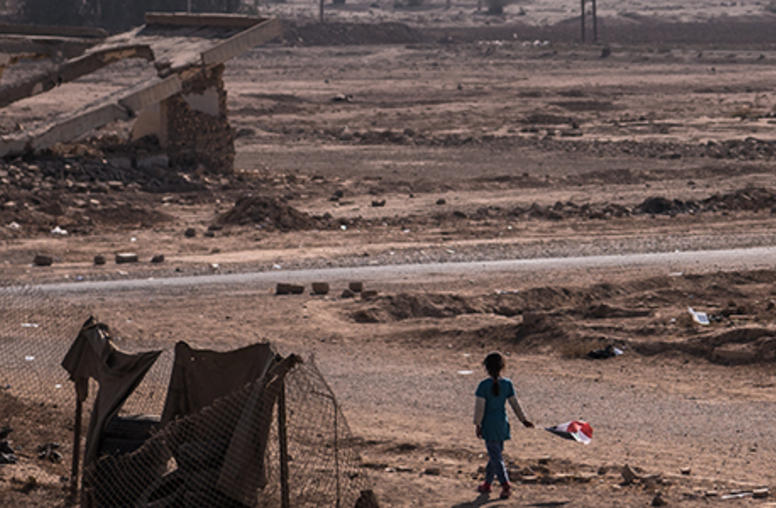
From ISIS to Al-Qaida: The Changing Extremist Threat
The Islamic State may be crumbling across Iraq, but the future prospects of violent extremist groups are far from fading. While ISIS rampaged across Iraq and Syria in 2014, setting up a terror-based regime to impose its will, a revitalized al-Qaida was taking a different, more sustainable approach by grafting itself onto local extremist groups, experts said in a forum at the U.S. Institute of Peace that also examined community approaches to preventing and countering violent extremism. Al-Qaid...
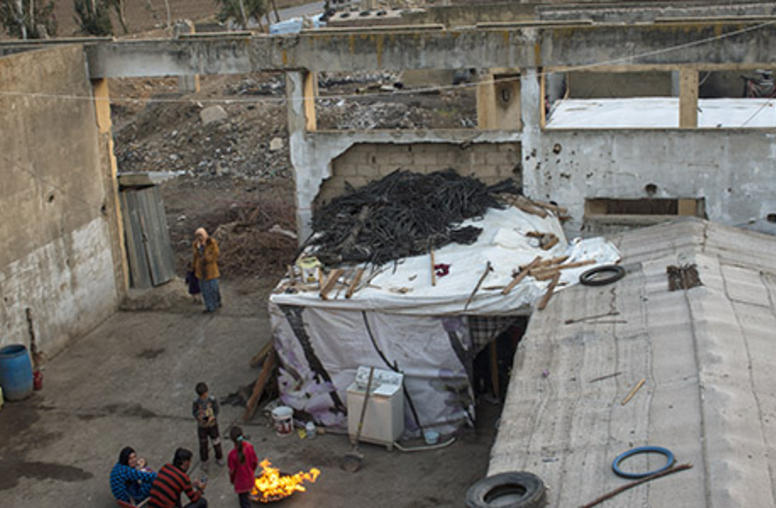
Q&A: Can Lebanon’s New President Defuse Major Crises?
The Lebanese Parliament’s selection this week of General Michel Aoun as president ends 2 ½ years of a leadership vacuum that mired decision-making on fundamental economic, social and political crises facing Lebanon. The Parliament had been unable to elect a new president since May 2014, even as it faced emergencies such as the influx of more than 1 million refugees from the war in neighboring Syria. USIP Middle East and North Africa Director Elie Abouaoun examines the potential effect of the ...
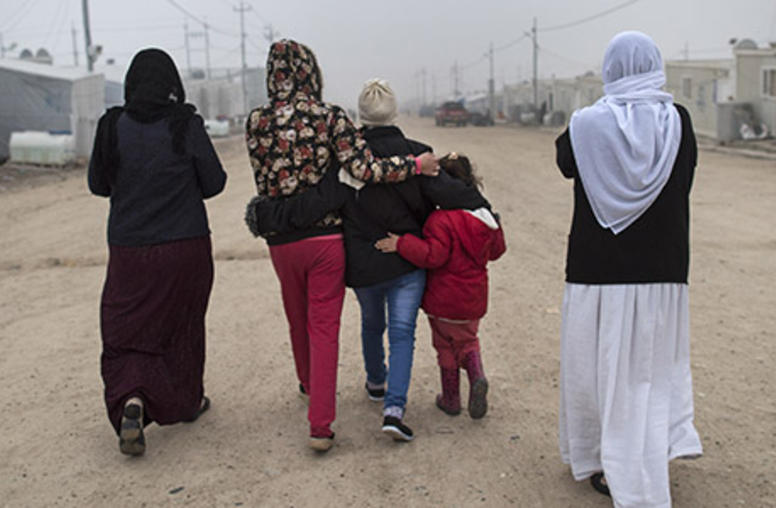
ISIS Makes Sex Slavery Key Tactic of Terrorism
The sexual violence committed against women and girls by the Islamic State of Iraq and Syria (ISIS) can only begin to be addressed with a multipronged response from the global to the local level, said Zainab Hawa Bangura, the United Nations’ point person on the issue. Speaking at the U.S. Institute of Peace, Bangura cited work ranging from promotion of U.N. resolutions to talks with religious leaders to suggest how the brutal, systematic sexual slavery imposed by the extremist group might be ...
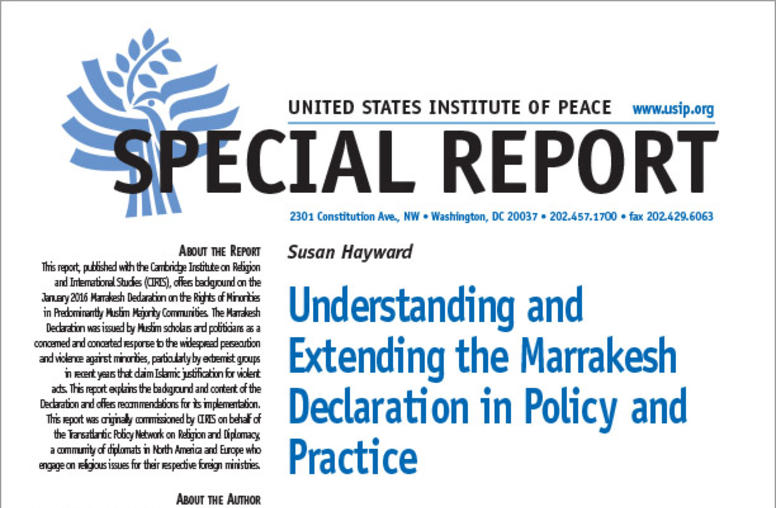
Understanding and Extending the Marrakesh Declaration in Policy and Practice
In January 2016, the Marrakesh Declaration was issued by Muslim scholars and politicians as a concerted response to the persecution of and violence against minorities in Muslin-majority countries. This report, published with the Cambridge Institute on Religion and International Studies, provides background on the Marrakesh Declaration and recommendations to those from both Muslim and non-Muslim majority contexts to ensure the Declaration’s implementation and legitimacy.

U.S. Leadership and the Challenge of ‘State Fragility’
The new administration, a coming change in leadership at the United Nations, and an emerging global consensus about the fragility challenge make this an opportune moment to recalibrate our approach. The United States cannot and should not try to “fix” every fragile state. Nor can we ignore this challenge; all fragility has the potential to affect U.S. interests to some extent, especially when left to fester. There is simply too much at stake for our interests, our partners, and the global ord...
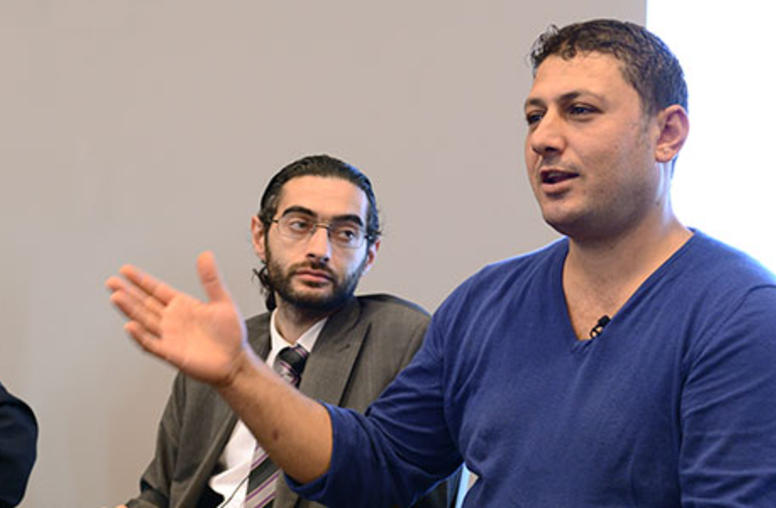
Syrian Rescuer, Killed in Airstrike, Felt the Danger
Khaled Harah, a volunteer with Syria’s Civil Defense Force, or “White Helmets,” died in an airstrike in Aleppo last week as he worked to rescue survivors amid the debris of an aerial bombing. In 2014 at USIP, Harah and some of his colleagues described that rescue work, which had brought them to world attention.
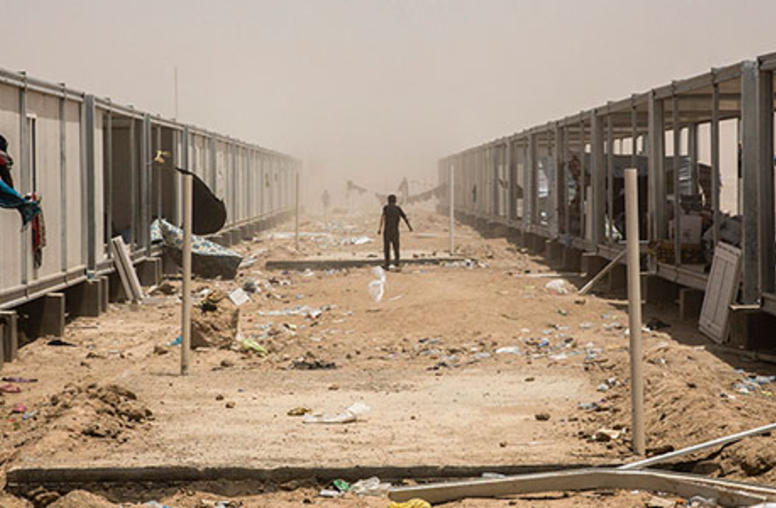
For Iraq’s ISIS Targets, Urgent Need for Aid and Security
The recent U.S. designation of genocide to describe the ISIS extremist group’s killings and persecution of minorities as well as Shia Muslims in Iraq and Syria highlighted the long history of oppression of religious and ethnic groups and the questions looming about whether religious minorities especially can survive in the region, according to USIP Senior Program Officer Sarhang Hamasaeed.